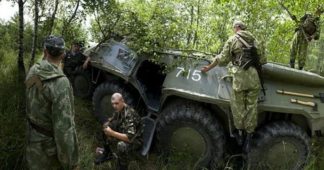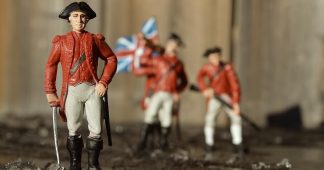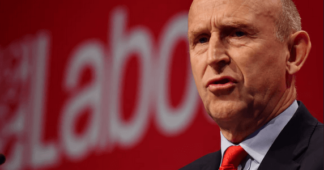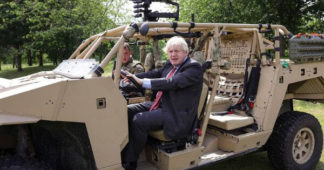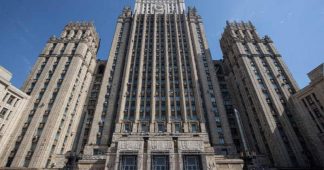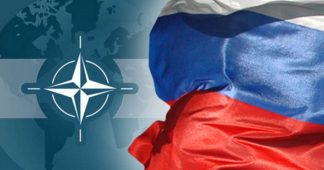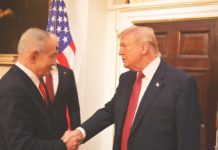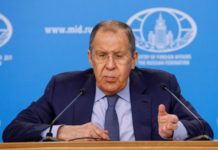Government should ‘throw all its energy into seeking a negotiated settlement before nuclear war destroys us all,’ CND general secretary Kate Hudson says
Apr 29, 2022
PEACE campaigners slammed British escalation of an already “dangerous situation” in eastern Europe today as the MoD announced one of its largest troop deployments since the Cold War.
Around 8,000 British troops are to be sent to countries ranging from Finland to North Macedonia this summer, Defence Secretary Ben Wallace confirmed.
Mr Wallace said the “show of solidarity and strength” would see British service personnel gather alongside Nato allies for a series of joint exercises.
But peace campaigners have condemned the “provocative” military escalation.
Stop the War Coalition national officer John Rees said: “[Prime Minister Boris Johnson] is spending £1.5 billion on arming Ukraine. That’s the equivalent of 30,000 nurses’ wages for a year.
“It’s a waste of money and, worse still, it will escalate an already dangerous situation and end in more death and suffering.”
Campaign for Nuclear Disarmament general secretary Kate Hudson warned of the danger of the use of nuclear weapons in the conflict.
Ms Hudson said: “Rather than escalating the scale and scope of Nato’s annual provocative and wasteful exercises, with their attendant carbon boot print, our government should throw all its energy into seeking a negotiated settlement before nuclear war destroys us all.
“The countdown is on while our government is in denial. There’s nothing to be gained by military posturing and everything to be lost.”
This comes as the Biden administration in the US announced on Thursday it will seek another $30 billion (£24bn) from Congress in military aid for Ukraine on top of the $14bn (£11bn) Congress approved last month.
Stop the War convenor Lindsey German criticised a lack of activity by the United Nations in helping to resolve the conflict.
Ms German said: “The UN has been too slow to act. Antonio Guterres’s visits to Moscow and Kyiv are welcome but late.
“We need a ceasefire now and withdrawal of Russian troops and a long-term security agreement.
“The world needs to unite to stop the appalling destruction and loss of life. We need the language of peace to bring this about.”
Meanwhile it has emerged that two British humanitarian workers have been detained by Russian forces.
Paul Urey and Dylan Healy, two aid workers from non-profit organisation Presidium Network, were captured while out volunteering by the Russian military on Monday at a checkpoint south of the city of Zaporizhzhia in the south-east of the country.
Presidium Network co-founder Dominik Byrne said: “Basically what needs [to be] done is two things – we need to put pressure on the government to take this case seriously, and try, through their networks to verify this, but also to kind of help us find these people.”
International Trade Secretary Anne-Marie Trevelyan told Sky News the Foreign Office was “doing all it can to support” the aid workers.
Although there has been advice to stay away from the conflict it has been reported that British national Scott Sibley has been killed fighting for the Ukrainian forces.
This comes amid reports of serving British personnel who are believed to have gone absent without leave to join the Ukrainian forces.
Military veterans as well as Britons without combat experience are thought to have also travelled to Ukraine to fight.
Earlier this month, British nationals Shaun Pinner and Aiden Aslin were captured by Russian forces and are being held in Ukraine.
Ms Trevelyan said Mr Sibley’s death was “terribly sad” but denied that the government had sent mixed messages on Britons going to Ukraine to fight.
She told Times Radio: “The Foreign Office are working closely with authorities in Ukraine and indeed supporting the family.”
Ms Trevelyan said the clear advice from the government was “do not go to Ukraine.”
Published at morningstaronline.co.uk
Also read
Back to the future: British troops in Greece (1944)
British struggle for democracy in Indonesia
We remind our readers that publication of articles on our site does not mean that we agree with what is written. Our policy is to publish anything which we consider of interest, so as to assist our readers in forming their opinions. Sometimes we even publish articles with which we totally disagree, since we believe it is important for our readers to be informed on as wide a spectrum of views as possible.
